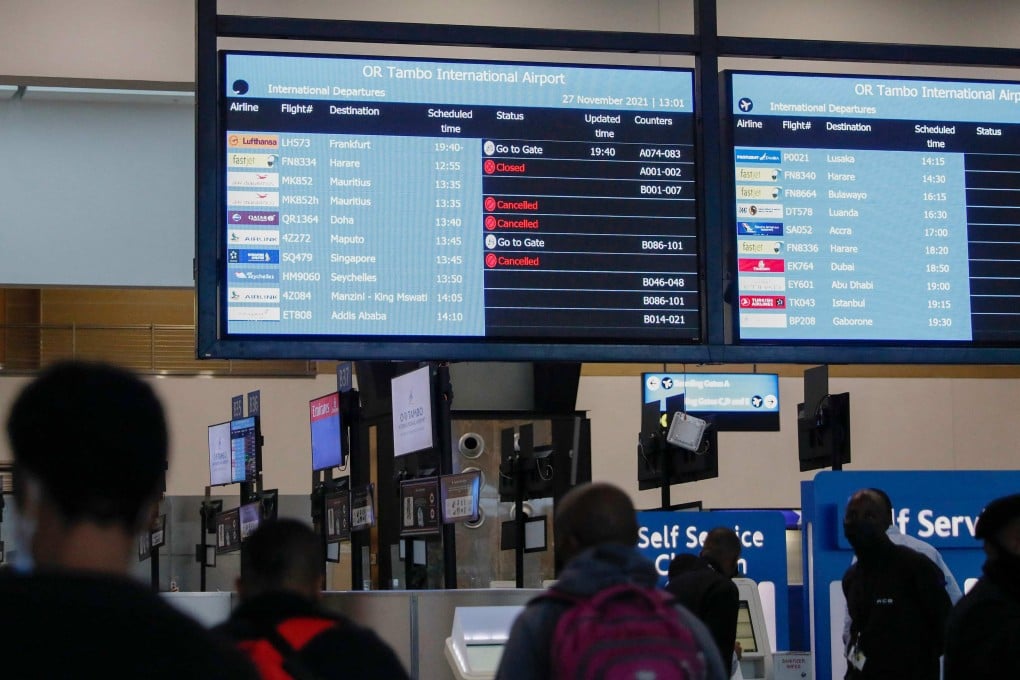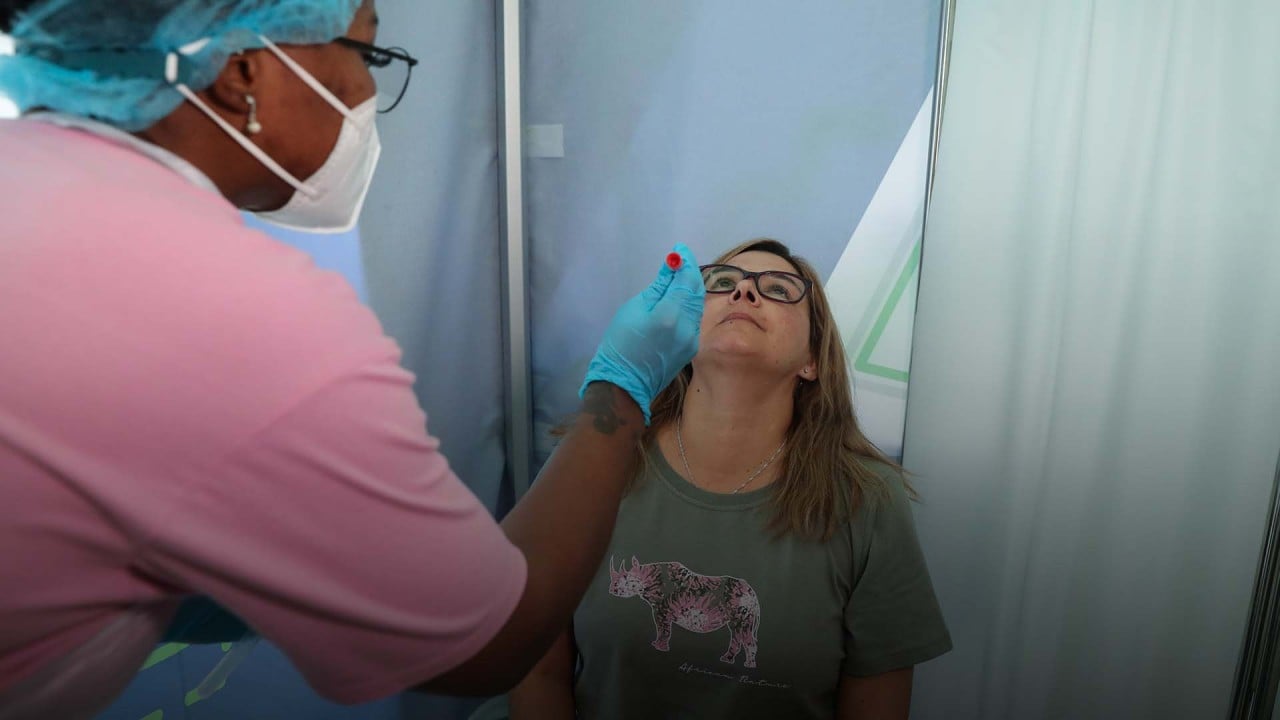WHO pulls together international experts to understand Covid-19 Omicron variant
- World health body blames vaccine inequity for emergence of Omicron and warns against global travel bans
- Still unclear whether latest strain of new coronavirus is more infectious or causes more severe disease than previous mutations

In an update on Sunday, the WHO stressed that more information was needed about Omicron, first detected in Botswana earlier this month, and said it was working with scientists around the world to understand the variant and its impact on disease control measures, including vaccines.
“Studies currently under way or under way shortly include assessments of transmissibility, severity of infection (including symptoms), performance of vaccines and diagnostic tests, and effectiveness of treatments,” the WHO said.
According to information so far, it is “not yet clear” whether Omicron can spread between people more easily than other variants or whether infection with the strain causes more severe disease compared with previous strains.
“The number of people testing positive has risen in areas of South Africa affected by this variant, but epidemiologic studies are under way to understand if it is because of Omicron or other factors,” the WHO said.
“Preliminary data suggests there are increasing rates of hospitalisation in South Africa, but this may be due to increasing overall numbers of people becoming infected, rather than a result of specific infection with Omicron.
“There is currently no information to suggest that symptoms associated with Omicron are different from those from other variants.”
